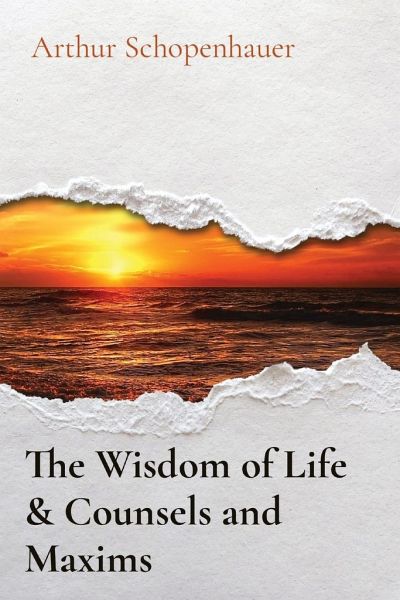
The Wisdom of Life & Counsels and Maxims

PAYBACK Punkte
7 °P sammeln!
"The Wisdom of Life and Counsels and Maxims" is a thought-provoking collection of insights and reflections on the nature of existence and the pursuit of happiness. Compiled from the works of renowned philosopher Arthur Schopenhauer, this book offers a unique perspective on the human condition, exploring the meaning of life, the importance of virtue and morality, and the sources of true happiness. With wit, wisdom, and a profound understanding of the human mind, Schopenhauer provides a roadmap for navigating the complexities of existence and offers practical advice for those seeking to live a f...
"The Wisdom of Life and Counsels and Maxims" is a thought-provoking collection of insights and reflections on the nature of existence and the pursuit of happiness. Compiled from the works of renowned philosopher Arthur Schopenhauer, this book offers a unique perspective on the human condition, exploring the meaning of life, the importance of virtue and morality, and the sources of true happiness. With wit, wisdom, and a profound understanding of the human mind, Schopenhauer provides a roadmap for navigating the complexities of existence and offers practical advice for those seeking to live a fulfilling life. This book is essential reading for anyone seeking to deepen their understanding of the human experience and find guidance for the journey ahead."














